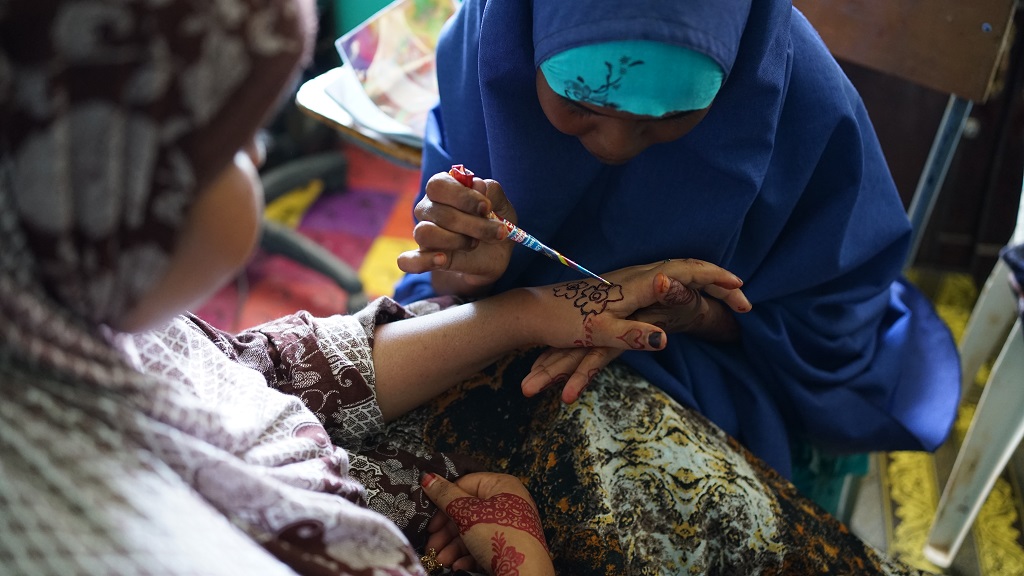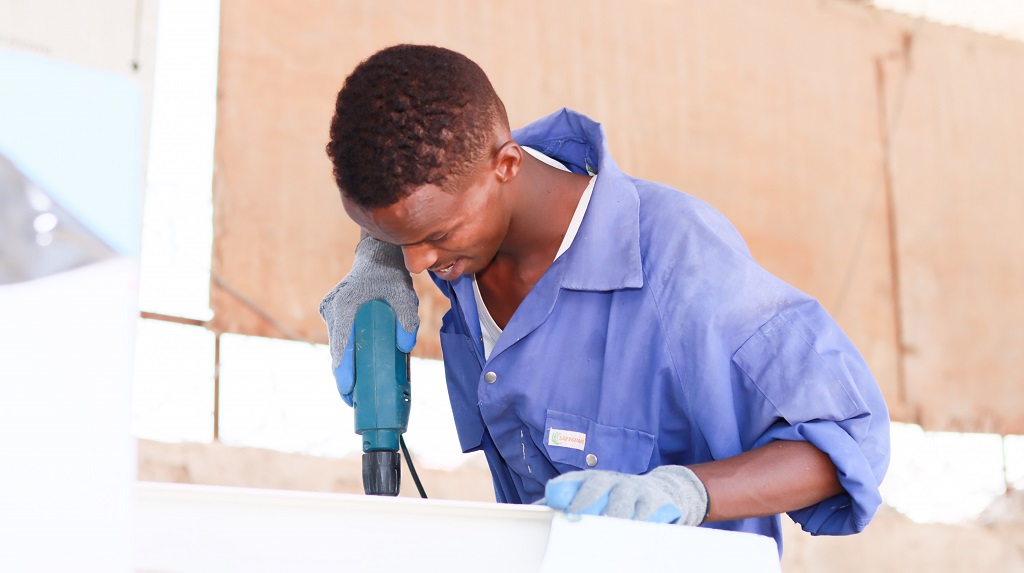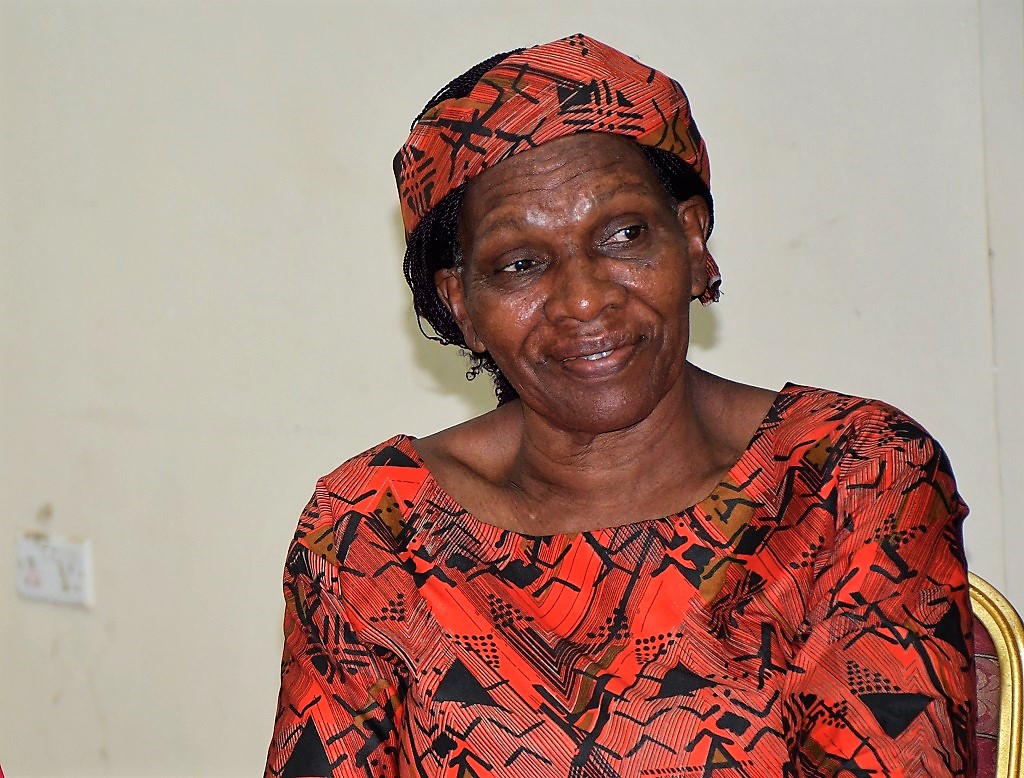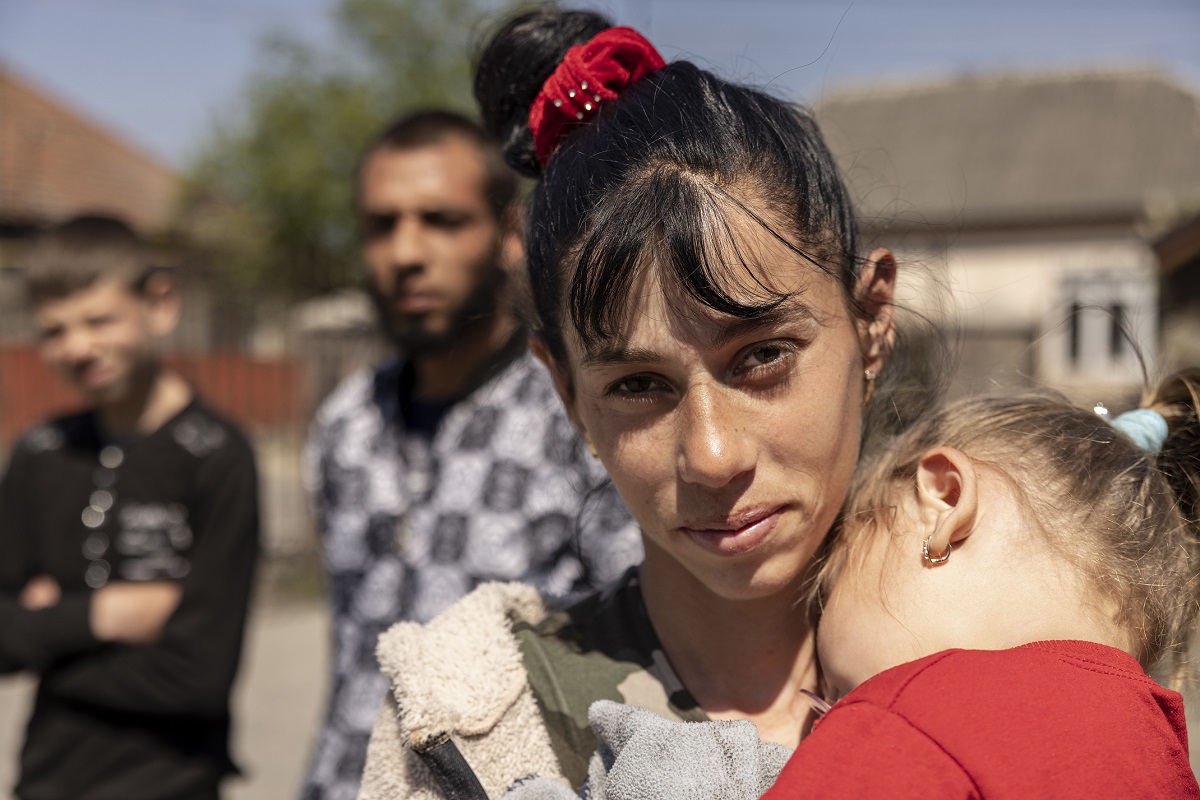Annual report: Development cooperation programme is reducing inequality and furthering reconciliation
19.12.2023
The annual report for the development cooperation programme of the Deaconess Foundation shows that the very first programme year has made significant changes in the lives of many people. The impacts are gradually beginning to be seen at the level of communities and societies as well.

In Ethiopia, young minority clan members and internally displaced women have participated in beauty business trainings organised by the Deaconess Foundation’s partner, the Organization for Welfare Development in Action. After completing training, some young people have started cooperative beauty salons with support from the development cooperation programme.
The development cooperation programme of the Deaconess Foundation is focused on reducing inequality and achieving reconciliation in East Africa and Eastern Europe. According to the recently released annual report, the programme reached more than 41,000 persons directly in 2022. More than 10,000 persons benefited from the programme indirectly.
The development cooperation of the Deaconess Foundation has an extensive heritage. Since 2022, the foundation has been one of the 23 Finnish non-governmental organisations that receive development cooperation funding from the Ministry of Foreign Affairs’ programme aid.
“In the course of the first year of the development cooperation programme, we developed the skills of insider reconcilers to promote peace and offer psychosocial aid to those suffering from conflicts, improved the subsistence of marginalised minorities and youths, and contributed to bettering the status of the Roma people in Eastern Europe,” says Saija Niemi, the Head of Operations for International Affairs at the Deaconess Foundation.
Russia’s offensive war had a big impact on the execution of the development cooperation programme, especially in Ukraine, where the Deaconess Foundation has been active since 2019. “We started immediately to channel emergency aid through our Ukrainian partner organisation Roma Women Fund Chiricli. Our development cooperation project reinforcing the inclusion and rights of the Roma minority changed shape, but the work continued soon after the war broke out,” says Niemi.
Work brings hope
In 2022, the development cooperation programme of the Deaconess Foundation offered training in support of employment and in entrepreneurship to more than 500 young people or minority members in difficult situations. More than 600 young people were supported in their life skills and in developing positive patterns of thought and action.
In addition to the training, the programme seeks to influence employers to get them to hire more people belonging to marginalised minorities or persons with disabilities. More than 200 Roma women taking part in the training in Eastern Europe got a job or started a business.
In East Africa, about half of the young people taking part in the training in 2022 found a job or had started a business by 2023.

Sahnoon Abdillahi Adan.
The 24-year-old Sahnoon Abdillahi Adan is one of the young people of Hargeisa to find a job after taking part in the Somaliland Youth Peer Education Network training.
Sahnoon’s family could not afford to pay his school fees after basic education, and no jobs were available for a person with no education. As such, he was excited to take part in training organised together with a construction company in Hargeisa, where he learnt for example to install windows and work with plaster.
The young man performed so well that the company decided to hire him and a few other trainees after the training ended. Sahnoon is glad to have a job and wishes that he could one day study to become an engineer, financing his studies with the money he earns.
Reconciliation skills for religious leaders, women, and young people
The development cooperation programme improved the skills of insider reconcilers in achieving reconciliation, providing psychosocial support and rehabilitating communities.
Almost 500 insider reconcilers from communities suffering from conflicts in the Horn of Africa received training and support in 2022. More than 300 of them used their new skills in that same year by participating in a total of 20 reconciliation processes.
Insider reconcilers are members of communities that need support and who for one reason or another are in a position to be able to help others. In Africa, such persons often work in religious communities, as does Margaret Barsaba, the Chair of the Women of Faith network operating in South Sudan.

Margaret Barsaba.
– Religious leaders are important, because people often turn to them with their concerns and requests. But they also need psychosocial support to live through their traumas, as they themselves have also suffered from the violence in their communities, says Barsaba.
Almost 100 persons received training in peace and reconciliation via the Women of Faith network in South Sudan, which suffers from prolonged conflicts. Not all of them are religious leaders, as training has also been provided for women and young people whose significance as insider reconcilers the Deaconess Foundation and its partner, the African council of religious leaders, especially wish to improve.
The status of the Roma minority is improved through advocacy

Paloma Gorvat. Picture: Meeri Koutaniemi.
Living in Mukachevo, Ukraine, Paloma Gorvat, her husband and their children have no identification papers and are not included in any government registers. There are approximately 30,000 other members of the Roma minority in Ukraine who are in the same situation. Due to the missing documents, they find it harder to find work, use various services, and move around the country in search of employment.
Gorvat and her family were assisted by a community mediator from the Roma Women Fund Chiricli, a Ukrainian partner organisation of the Deaconess Foundation, and the family is now waiting for immigrant services to check their documents. Roma Women Fund Chiricli collects and analyses cases like that of Paloma Gorvat and her family to get them registered via simplified proceedings in a pilot project conducted together with the Ukrainian Ombudsman’s office and the Council of Europe. The work of Roma mediators in these processes is paid for by funds from the development cooperation programme of the Deaconess Foundation.
With its development cooperation programme, the Deaconess Foundation supports the work of Eastern European Roma organisations to advocate for the rights of the Roma minority. For example, the Kosovar organisation Voice of Roma, Ashkali and Egyptians managed in 2022 to influence the contents of the national Roma strategy and create a national employment mechanism together with the office of good governance in order to improve the inclusion of Roma community members in the public sector.
As a result of this advocacy work, the position and opportunities for education and employment of the marginalised Roma minority are gradually improving.
Boldly working for human dignity – in Finland and abroad
The Deaconess Foundation is a social foundation that uses the profits generated in its business to support the most vulnerable members of society. In its corporate responsibility programme, the Foundation is also committed to improving social trust by means of for instance development cooperation.
“We always operate at the levels of the individual, the community, and society – this is responsible, humane, and impactful. We are involved in development cooperation in areas and themes that other Finnish entities are not involved with,” says Maija Hyle, the Director for Non-Profit Operations at the Deaconess Foundation.
Independent evaluations by the Ministry for Foreign Affairs have found that development cooperation efforts by non-governmental organisations are cost-effective and efficient at improving the rights of the most vulnerable in particular. Because Finnish civil society organisations always work together with local non-governmental organisations, the work carried out by them also reinforces the civil societies of those countries.
“We are rare among Finnish development cooperation organisations, because we work with our programmatic themes, such as youth employment, reconciliation, the psychosocial support of those traumatised in war, and Eastern European Roma in Finland as well, and can benefit from such expertise in our development cooperation projects. Exchanging experiences and sharing know-how benefits not only our partners, but our Finnish experts as well,” says Maija Hyle.
“The Deaconess Foundation wants to do its part in reducing global inequality and promoting sustainable development goals. The report for the first programme year shows that we are headed in the right direction and have already achieved meaningful results,” Hyle continues.
Read the whole report